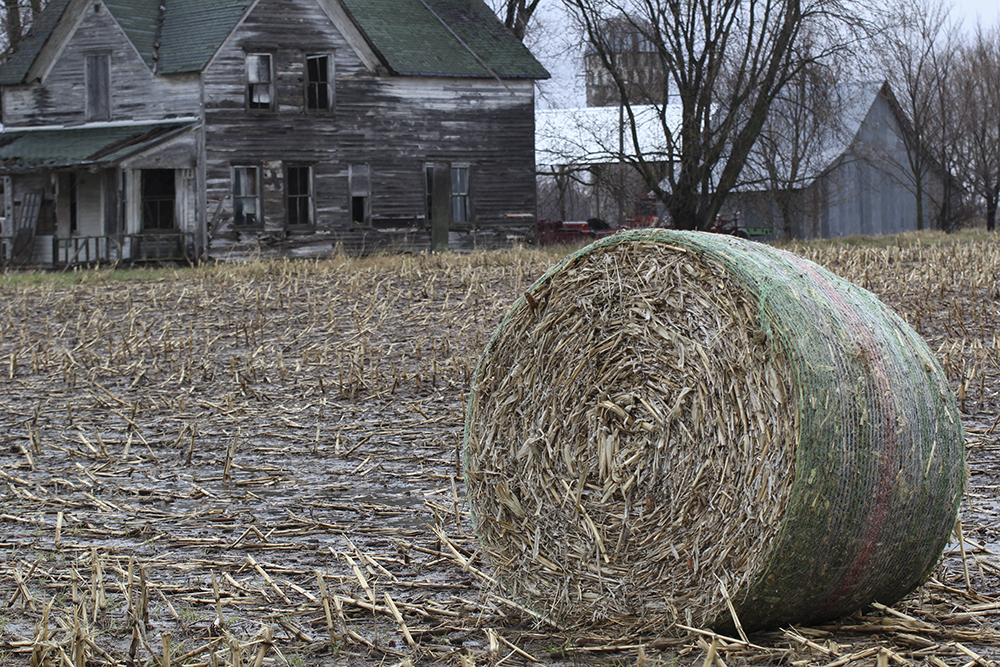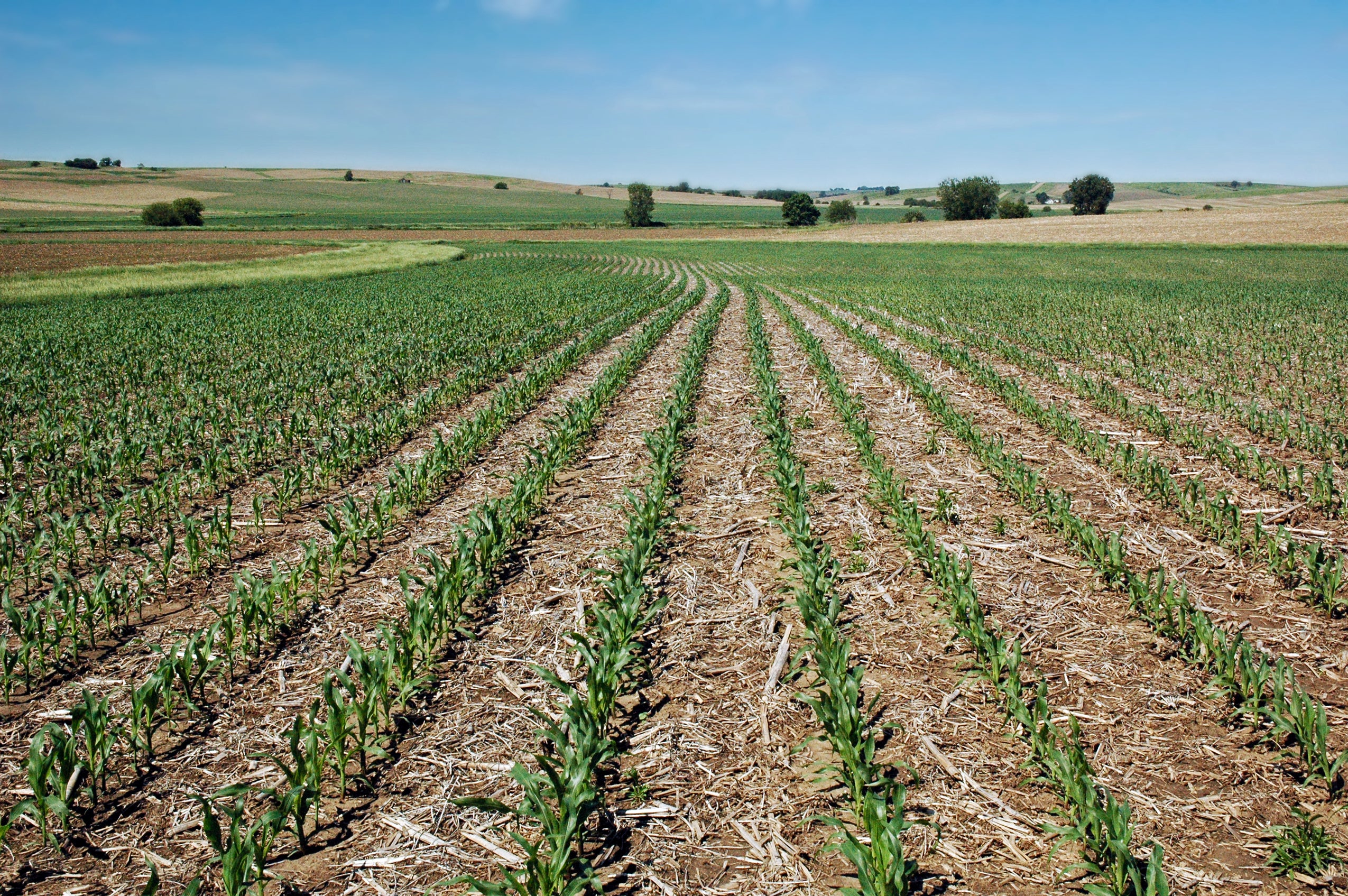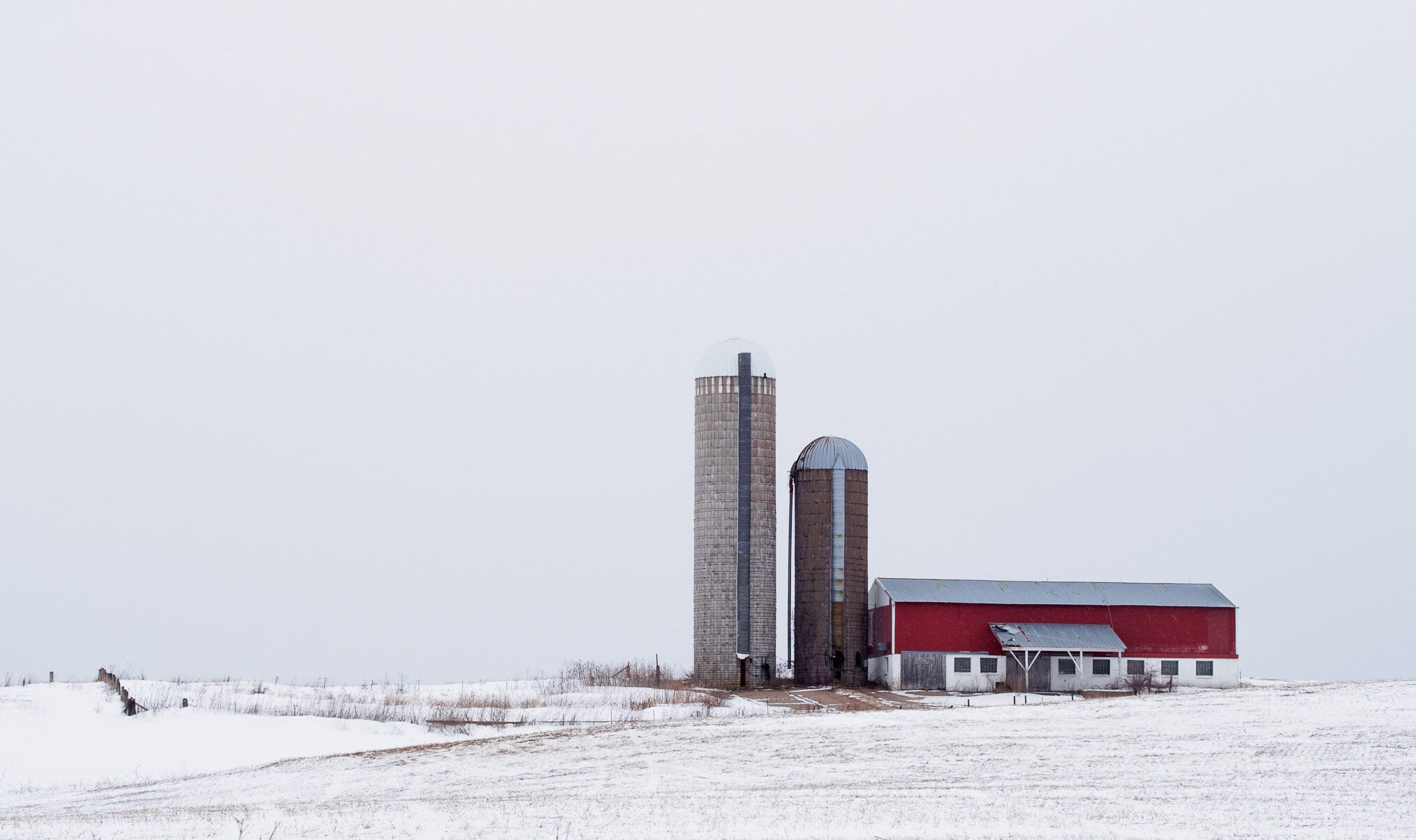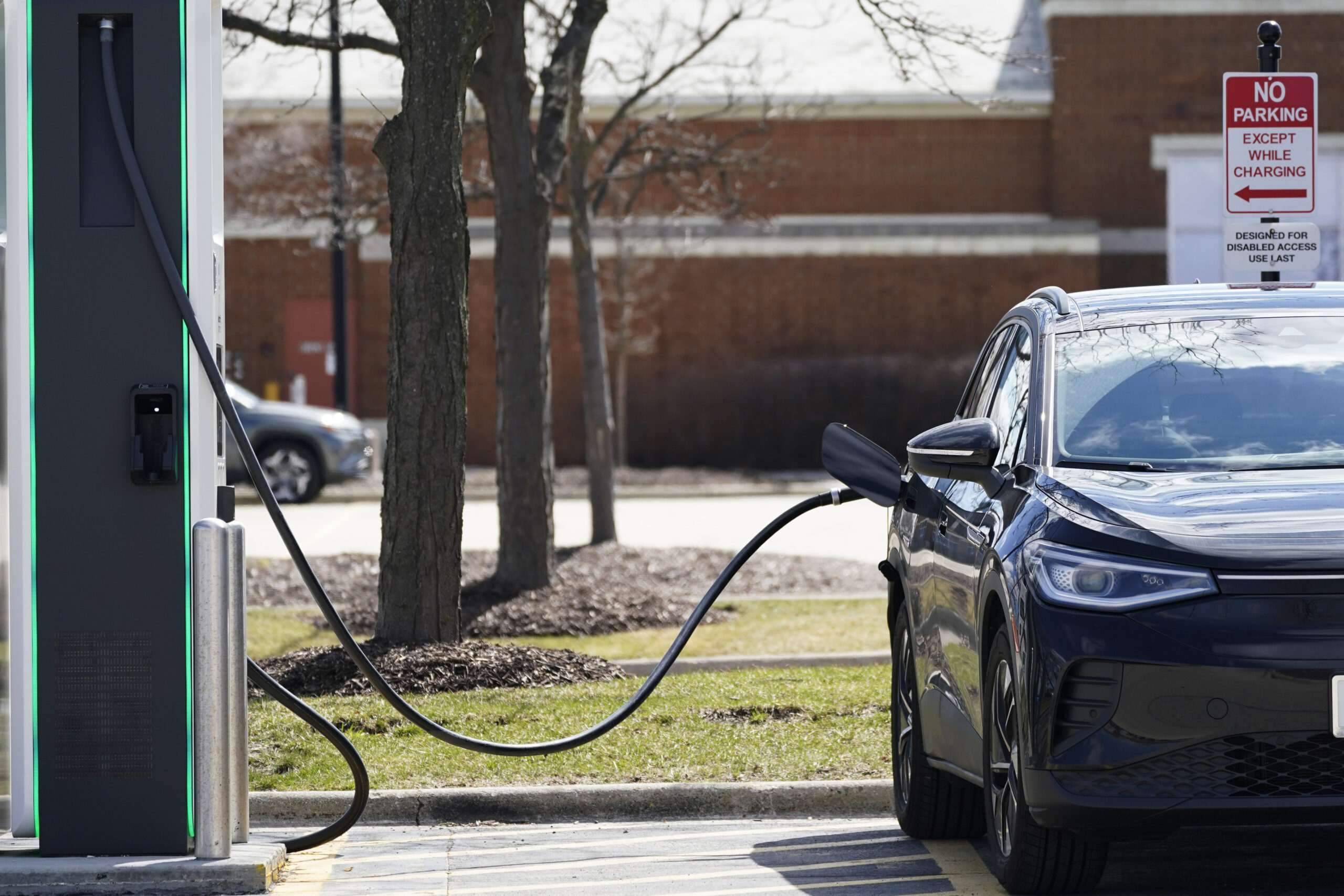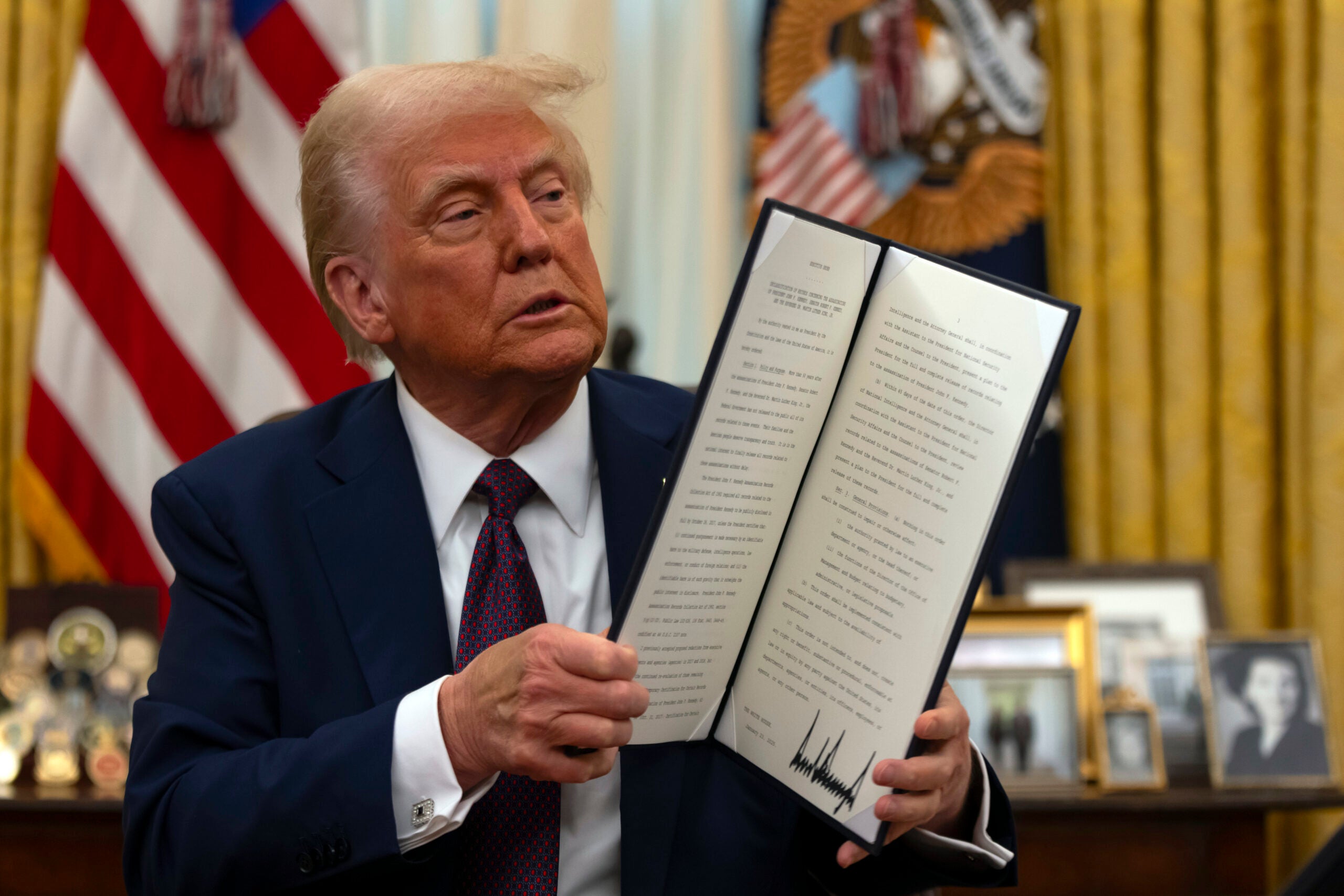The ongoing freeze on federal funding for overseas food aid and on-farm conservation projects has created uncertainty for Wisconsin farmers and ag groups preparing for this year’s growing season.
President Donald Trump halted food purchases for foreign aid through the U.S. Agency for International Development, or USAID, in January. About 41 percent of the food aid provided by USAID is purchased from American farmers, according to The Washington Post.
The president also halted funds for “climate smart” agriculture projects created through the 2022 Inflation Reduction Act. That includes expanded funding for farmer cost-sharing contracts and grants through agencies under the U.S. Department of Agriculture.
Stay informed on the latest news
Sign up for WPR’s email newsletter.
Wisconsin ag leaders say it’s difficult to understand how much of the frozen funding was meant for Wisconsin farms.
Soybeans is one of the major commodities purchased by USAID, according to agricultural economist Paul Mitchell at the University of Wisconsin-Madison.
But Mitchell said foreign food aid also includes shelf-stable foods that may be produced by Wisconsin farms and food processors. With the agency’s website largely down, he said it’s almost impossible to determine what products could be affected.
“It’s going to have local effects,” Mitchell said. “How much of that is dried red kidney beans? I don’t know. How much is dried cranberries? I don’t know. How much is dehydrated potatoes from the state? It’s difficult to tell.”
He said companies with USAID contracts will be the first to feel the impact of the funding pause, and it will take time to see the ripple effects of halted commodity purchases on commodity prices. That could affect planting and crop insurance decisions for Wisconsin farmers in the coming months.
“Planting time, say April, May, June, there will be a lot of watching the markets and making adjustments if the markets are showing big drops or big increases in prices,” Mitchell said. “That will be the big one, is waiting until the last minute to really adjust.”
Farmer groups left without reimbursement for conservation projects
Organizations working with Wisconsin farmers on conservation and market development projects have already had their funding frozen by Trump administration orders.
Wisconsin-based nonprofit Dairy Grazing Apprenticeship was awarded $4.8 million dollars in 2022 through the Climate-Smart Commodities grant program, which was created with funding from the Inflation Reduction Act.
Executive Director Joe Tomandl said their five-year contract with USDA requires them to front the cost of completing the project and submit an invoice for reimbursement the following month. Since the president’s order halting the funding, he hasn’t been able to submit invoices and isn’t sure whether the funding they’ve been promised will be released.
“We have not been instructed to stop work or anything like that,” Tomandl said. “Reports and everything are still due. They’re being accepted, but we’re just not getting reimbursed.”
Tomandl said much of the federal funding goes toward salaries of the staff his organization hired to complete the project. The group also provides direct payments to farmers during the growing season, another funding source that Tomandl said has been frozen.
He said nonprofit organizations like his would be devastated if the work they’ve been contracted to complete by USDA is not reimbursed.
Marbleseed, another Wisconsin-based nonprofit that provides support for organic farmers, has also had their federal funding halted.
Lori Stern, executive director of the organization, said the freeze is also impacting some individual farmers who were promised cost-sharing funds to implement specific conservation projects.
She said those that have already done the work aren’t able to get reimbursed and she thinks it may delay some farms’ plans to complete the contracted projects this spring.
“Farmers are probably having to think twice about: ‘Am I going to buy that cover crop seed? Am I going to get that fencing? Am I going to put up that high tunnel?’” she said. “I’m sure it’s putting a lot of pause on people’s plans and wondering what’s going to happen next.”
Wisconsin Public Radio, © Copyright 2025, Board of Regents of the University of Wisconsin System and Wisconsin Educational Communications Board.

